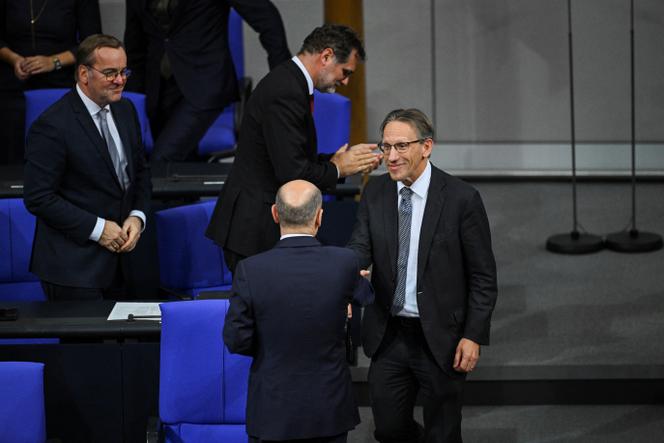


Germany had barely a few hours to acknowledge Donald Trump's victory before it plunged into a political crisis of its own. On Thursday, November 7, the country woke up to a government without a majority and without some of its ministers. The previous day's decision by Social Democrat Chancellor Olaf Scholz (SPD) to dismiss liberal Finance Minister Christian Lindner (FDP), effectively burying the three-party coalition in power since 2021 and paving the way for early elections, took many elected representatives by surprise. In Berlin on Thursday, the excitement was palpable in the corridors of the Bundestag. "The reality is that nobody is ready for early elections," admitted FDP MP Sandra Weeser. "There are no local candidates yet."
On Wednesday evening, Scholz announced that he would submit to a vote of confidence on January 15, 2025, meaning that early parliamentary elections could be held in the spring. But the opposition, led by Christian Democrat leader Friedrich Merz (CDU), is calling for an acceleration of the timetable, with a vote of confidence as early as next week for elections in January 2025. "We cannot afford to have a government without a majority in Germany for several months, followed by a campaign lasting several more months, and then possibly several weeks of coalition negotiations," said Merz, whose party is currently leading the national polls, with around 32% of voting intentions, according to the latest surveys.
"Our country needs a government that doesn't just officiate, but is capable of action," added now ex-minister Lindner on Thursday. "The right thing to do would be to immediately put the question of confidence to the vote and call new elections. In a democracy, no one should be afraid of the voters." The far right and Sahra Wagenknecht's new left-wing party, which distinguished itself in the recent regional elections in the east of the country, joined in these calls.
Anxious to reassure voters and business circles alike, Scholz appointed his closest economic adviser, Jörg Kukies, as finance minister on Thursday morning. Although he will only occupy the post on an interim basis, it is a strategic one. It was the discussions surrounding the 2025 budget that shattered the coalition on Wednesday evening, pitting the advocates of austerity against those of recovery. At the heart of the confrontation was the easing of the "debt brake," a constitutional provision that limits the federal government's structural deficit to 0.35% of gross domestic product each year.
You have 50.02% of this article left to read. The rest is for subscribers only.
